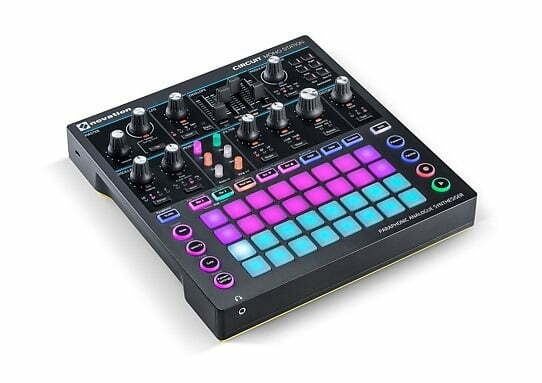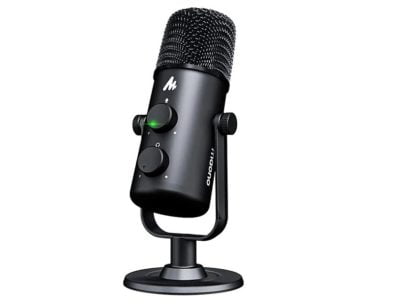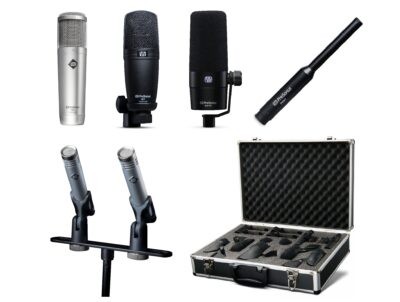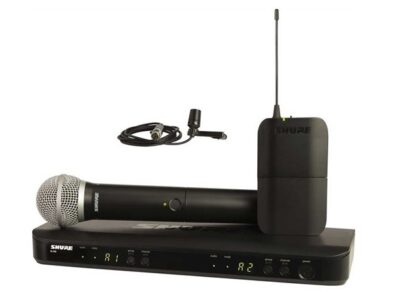Description
Circuit Mono Station – Next-generation sequenced monosynth
Circuit Mono Station is a paraphonic analogue synthesiser that originates from the Novation Bass Station II, with three sequencer tracks that benefit from the 32 velocity-sensitive RGB pads found on Circuit.

Connect to just about anything
The CV, Gate and modulation outputs provide an easy mechanism for controlling separate hardware. You can plug Circuit Mono Station into your Mac or PC via USB and start playing. It also has MIDI In, Out and Thru, so you can connect your other MIDI gear. Passing an audio signal through the audio input opens up a world of analogue filtration and distortion. Using the audio input with the mod sequencer, you can modulate, evolve and process your source in entirely new ways.

Three sequencer tracks
Both monophonic and paraphonic modes are available, with each oscillator controlled by its own sequencer. In total, there’s two oscillator sequencers and one modulation sequencer. You can alter Gate length, switch patterns instantly, choose sync rate and mutate patterns.
Demystifying ‘Paraphonic’
Novation’s Circuit Mono Station is by no means the first paraphonic synth. But by embracing ‘paraphony’, we entered a sometimes confusing sub-section of synthesis categorisation.
Turns out that the sub-section of phraseology that refers to the number of sounds a synth is capable of creating at any one time is a pretty confusing topic. Read what Peter Kirn (Create Digital Music) and the makers of Circuit Mono Station have to say about it.
Features
- Individually control oscillators – Two oscillators with individual control of sync and tuning parameters.
- Get the frequency band you want – High-pass, low-pass and band-pass filters with slopes of 12dB and 24dB.
- Three distortion modes – Classic Bass Station, new fuzz or a mixture of both.
- Monophonic and paraphonic – Monophonic and paraphonic modes with individual glide control.
- Adaptable modulation system – Four-by-eight modulation matrix that enables complex alteration and routing.
- Patches at your fingertips – Load and save up to 64 patches on the device.
- Three sequencer tracks – Two oscillator sequencers and one modulation sequencer.
- Connect to hardware and software – CV, Gate and modulation outputs for controlling separate hardware. Connect and sync to your music software and MIDI-compatible hardware. Modulate, evolve and process your source through the audio input.
Oscillator waveforms include:
- Sine, triangle, sawtooth, square / variable pulse width
Envelope
- 1 ADSR Envelope (Attack/Decay/Sustain/Release)
- Routable via the modulation matrix
LFO
- Single LFO with rate
- Sync mode
Waveforms include:
- Sine, triangle, sawtooth, square / variable pulse width, sample and hold
Filter
- State variable OTA filter
- 12/24dB slope
- Low-pass / band-pass / high-pass
- Pre-filter overdrive
- Frequency and resonance controls
Modulation
- 4×8 Modulation matrix
- All modulation routes available at all times with depth control for each route
Mod sources (4)
- Envelope
- LFO
- Modulation sequence
- Pad velocity
Mod destinations (8)
- Osc 1 pitch
- Osc 2 pitch
- Osc 1 PWM
- Osc 2 PWM
- Amp
- Filter cut-off
- Distortion level
- Aux CV output
Mixer:
- Osc 1 level
- Osc 2 level
- Sub Osc level
- Noise generator level
- Ring modulation depth
- Audio In (with gain control)
Distortion
- 3 types of analogue distortion: 1, 2 and 3 (combination of 1 & 2)
Sequencer
- 32 Sessions
- 2 Tracks per session + 1 track modulation sequence
- 16 Patterns for osc 1, 8 patterns for osc 2 and mod sequence
- 16 Demo sessions
- Real time record (notes, with velocity and automation)
- Auto-quantise notes to steps and automation to 6 events per step
- Sequencer resolution 24 PPQN
- 51 Automation parameters
- All knob and slider movements can be recorded (excluding volume)
- All modulation route depths can be automated
- Tempo range 40 – 240 BPM
- Swing 20 – 80%
- Glide amount configurable per step
- 8 Pattern sync rates (incl. triplet rates)
- Pattern direction setting including ping-pong and random
- Pattern mutate
- 8 Global swing sync rates (incl. triplet rates)
Real Time Performance
- Full range velocity scanning and record. Editable to 16 levels
- 16 Scale types and chromatic transposition
- Synth expand view doubles playable area
- Dual view for playing osc 1 and osc 2 simultaneously and independently
- Paraphonic mode option switch to select how the amp envelope triggers
- Configurable pattern start and end points
- Configurable pattern chain
- Instant and queued Session switching
- Instant and queued Pattern switching
Editing
- Velocity and gate per step
- Fractional gate lengths (each step divisible by 6)
- Automation edit per step
- Clear step, automation parameter per pattern, pattern, session
- Duplicate step, pattern
Software Compatibility
- Ableton Live Lite 9 is included
- Circuit Mono Station is a USB-MIDI class compliant device
Power Requirements
- Maximum power consumption 12V DC 1A
Product Dimensions
- 240mm (9.45”) width x 250mm (9.84”) depth x 54mm (2.13”) height








